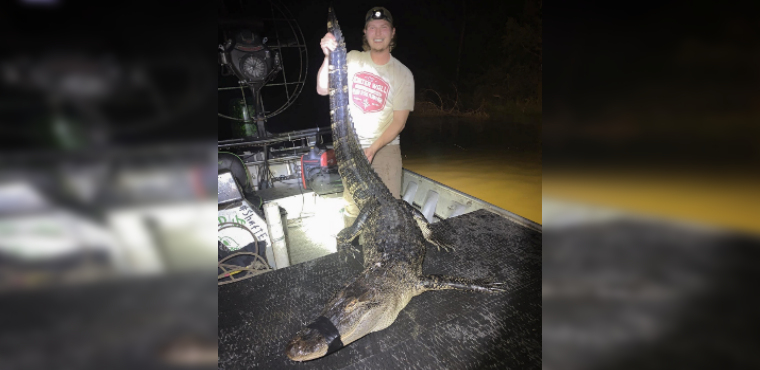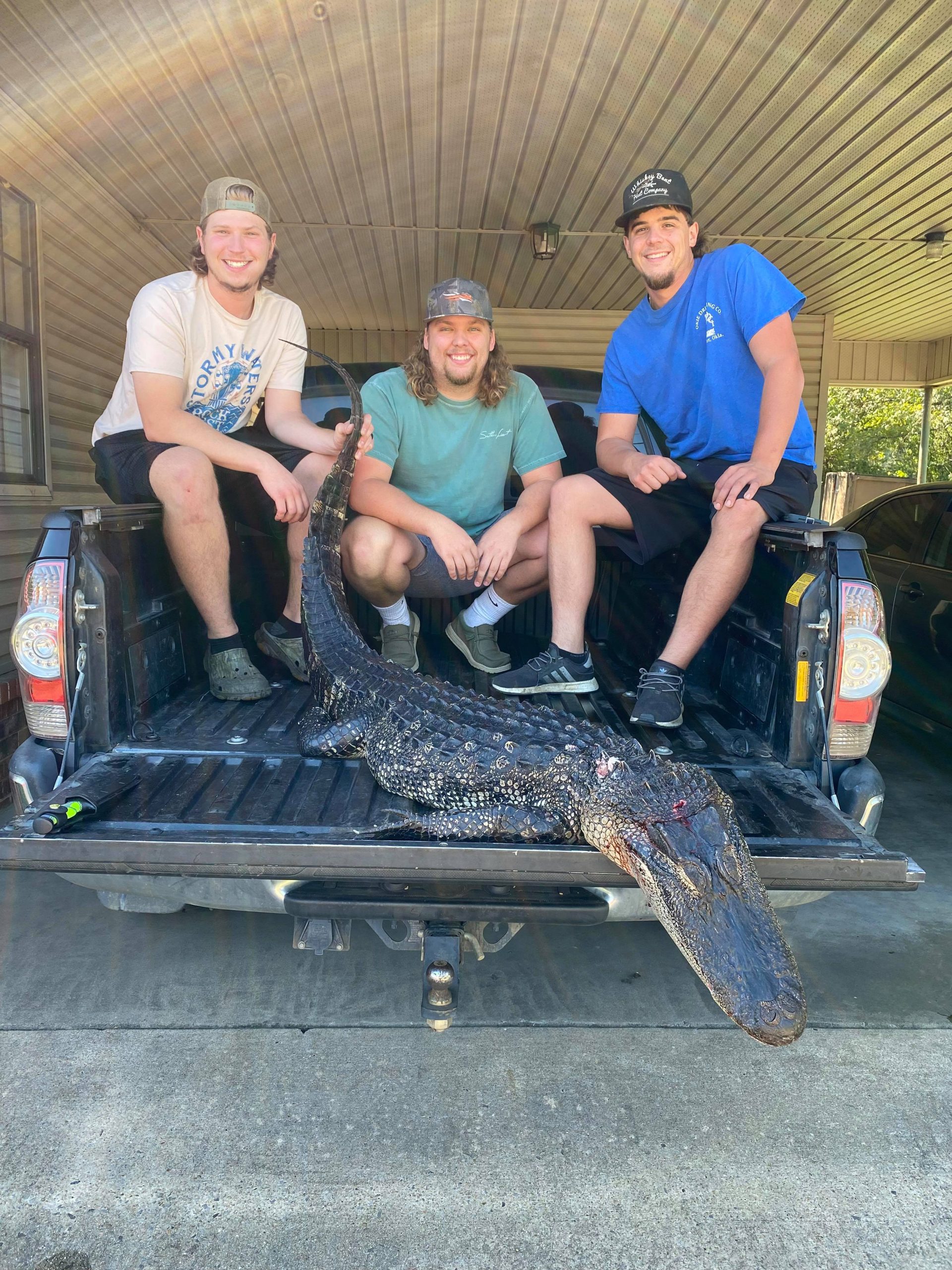The 15th annual Arkansas alligator season came to a close early Monday morning, September 27, with a nearly full ticket. Hunters harvested 161 alligators during this year’s two-weekend season.
Eric Tobey from Hartford was among those who had a successful hunt. “It was awesome,” shared Tobey. “We had trouble getting close to them in the beginning, so we changed our tactics the second weekend and were finally able to get within range…We got the boat about five yards from the one I killed. He was floating on the surface and he started to go under so I threw the harpoon and luckily stuck him in the back! He swam around with my buoy for about 20 minutes before we could catch up to him and pull him up close enough for me to take a shot. Anyone who loves to hunt and be on the water at night I’d recommend them putting in for a tag. It’s not easy but it’s well worth the preparation and trouble it takes to get one in the boat!”
Tobey’s alligator was 7’9″ in length. He is also having the head mounted. “I couldn’t have done it without the help of my buddies.” Tobey added. “It’s definitely not a one man job!”
Mark Barbee, AGFC wildlife assistant regional supervisor in southeast Arkansas who coordinates the alligator hunts, said the hunt went very smoothly, and for hunters in the private land zones, it went very quickly.
The harvest falls short of last year’s 174-alligator record, but that was primarily by design. This year’s quota on private land was reduced to continue managing the alligator population with an eye on conserving the species as well as controlling nuisance issues and providing hunting opportunities.
“This was the second year of the new private land quota system, and it was the second time in a row that the private land zones reached their quota by the end of the opening weekend,” Barbee said. “I imagine quite a few of the gators taken on private land are landowners wanting to remove an alligator for nuisance purposes, so they’re ready that first weekend and have the animal pretty well patterned by the time the hunt begins.”
Public land zones did see a few tags go unfilled by the end of the hunt, but Barbee says nearly everyone he’s talked to had good opportunities for an alligator.
“Some people in the public land hunts hold out a little for a bigger gator,” Barbee said. “With only two weekends to seal the deal, some of those hunters don’t find a gator they want to take or wait too late to go back and get one of the smaller alligators.”
Barbee said one hunter unfortunately was not able to take advantage of his harvested alligator.
“We had one incident where a hunter harpooned an alligator, but it submerged and hung up underneath a bunch of logs and limbs,” Barbee said. “The hunter thought he had lost it, but it floated to the surface a couple of days later. They were able to recover the head for taxidermy and check the gator, but the meat and skin had already begun to decompose. I really appreciate them calling and checking the animal even if they didn’t get to use it. It’s a great example of the sportsmanship and ethics we see in our hunters here in Arkansas.”
The harvest by zone was as follows:
Alligator Zone 1
Public Land — 5
Private Land — 62
Alligator Zone 2
Private Land — 5
Alligator Zone 3
Public Land — 10
Private Land — 79
In 1973 the American alligator was listed as a federally endangered species, but thanks to the efforts of biologists in many states, healthy populations now exist in many Southeastern states. The AGFC was involved in the reintroduction of alligators in southern Arkansas from 1972 to 1984, relocating more than 2,800 alligators to repopulate wetland areas along the Arkansas River and Red River in the southern corners of the state.
Modern-day alligator hunting began in 2007 under the guidance of the U.S. Fish and Wildlife Service to maintain alligator populations at healthy levels and offer additional hunting opportunities to Arkansas sportsmen and sportswomen. During that first season, 32 permits were issued to hunt, and 21 alligators were harvested.
Visit www.agfc.com/alligator for more information on alligators and alligator hunting in Arkansas.








